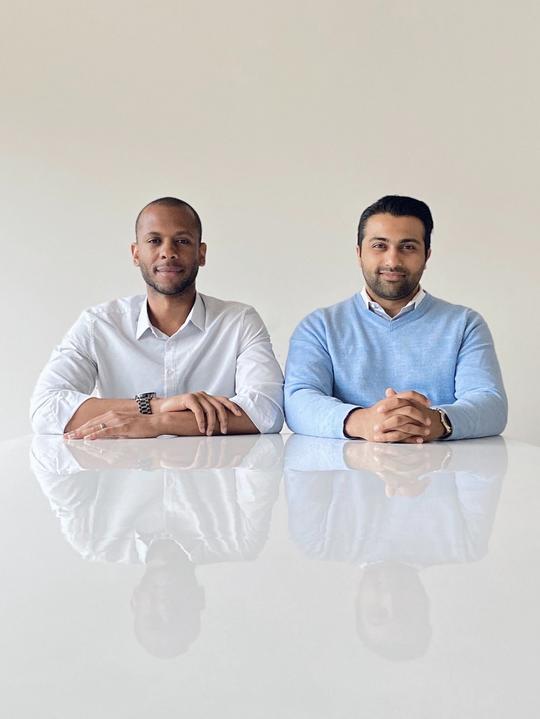
After his father became sick, Rezilient’s CEO and founder, Dr. Danish Nagda, found himself often at the doctor’s office as a primary caregiver. In one year, he spent nearly 5,000 minutes taking his father to and from doctors’ appointments — but only a small fraction of that time was spent actually interacting with a doctor.
What Danish realized as he kept digging deeper was that telehealth was just FaceTime. When you go to a doctor’s office, they do more than talk to you. They examine you. They do diagnostic testing, like looking at your ears or listening to your heart and lungs or performing an ultrasound. There’s more physicality to it.
So Rezilient’s solution is to be a hybrid approach — build CloudClinics close to where people are, develop a diagnostic system to allow doctors to control the appointment remotely, and put in place a care concierge team to help people navigate the health care maze.
We spoke with Nagda to learn more about how he joined forces with Jeff Gamble to start Rezilient and why St. Louis was chosen for the launch of the business.
How many people do you have on your team today?
Dr. Danish Nagda: We’ve grown from five this time last year, to 13 across clinical, engineering, operations and communications. We’re a deliberately lean team of passionate and inherently talented problem-solvers.
Are you planning on expanding to other markets?
Nagda: Right now, we’re laser-focused on delivering concierge primary care to the St. Louis market, starting with our flagship CloudClinic in downtown Clayton.
We’ll be expanding to Miami in early 2023, and other markets later next year.
How did you manage to overcome the challenges created by the pandemic?
Nagda: While we would never wish for the awful human toll of the pandemic, people have become much more comfortable with the concept of telehealth because of it.
We’ve found that people instantly understand the benefits of our model, which is designed around the doctor being 100% remote and appearing on the large monitor in our CloudClinics. People quickly understand the way we’re delivering primary care is a better version of both the legacy doctor’s office and traditional at-home telehealth.
Our building contractors have been incredible partners through the myriad supply chain issues caused by the pandemic. Construction delays are almost inevitable even during normal times, and they worked tirelessly through pandemic logistics to juggle timelines and source materials so we could open our flagship CloudClinic on schedule.
What’s your mission and reason behind choosing St. Louis for your startup?
Nagda: Our mission is to bring concierge primary care to the masses. We believe that fundamentally enabling remote health care services by digitizing the full interaction between patients and their care teams allows for increased care access for all.
Starting this type of endeavor in St Louis is a no-brainer because of the deep health care services expertise in this city. Some of the largest employers in the region are in that industry, which significantly lowers the barrier for talent acquisition.
How was the support you received while in the SQ1 program, and how has it helped your company grow?
Nagda: SQ1 served as the context for joining forces with Jeff Gamble to co-found our startup, Rezilient. It was in that environment of dedicated entrepreneurs pursuing their dreams in evening classes, combined with mentors who were willing to tell you what you didn’t necessarily want to hear, that helped the two of us understand we had a dynamic as collaborators that would be able to stand the test of founding and building a company together.
What are some of the challenges the SQ1 program helped you overcome?
Nagda: Early in the life cycle of this company, SQ1 made it clear to us that building a company is an iterative process. It’s OK to change markets, for example, if you gather enough data suggesting that pursuing one customer segment isn’t the best path to market. In the end, entrepreneurship is about solving problems for a customer. SQ1 drove home what it meant to differentiate between “like-to-haves” and “need-to-haves” for customers.
How could SQ1 help others seeking to grow their startup?
Nagda: At its core, SQ1 is about 1) the comradery that comes from exchanging ideas and problems with other equally motivated entrepreneurs and 2) the mentorship that comes from working with program leaders who are willing to push you in ways you may never have seen for yourself. Those two things combined are very powerful for a company or idea that’s early in its journey.
Besides the expansion plans, what’s next for Rezilient?
Nagda: Rezilient is building the tech stack for omnichannel care. While we are “full-stack” today, with our doctors seeing our patients at our locations, over time we’re looking to expand into a platform where other doctors can see their patients at our locations.



